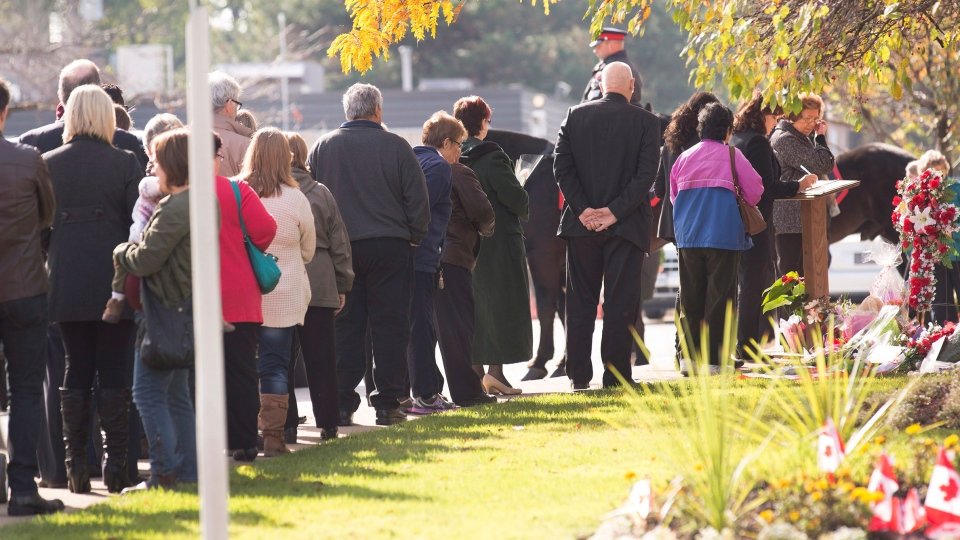I Am Next in Line, What Do I Say?
Waiting in the receiving line at a funeral or wake can be stressful for many. It’s often difficult to come up with something meaningful to say on the spot. Being put on the spot is frustrating for many mourners because it’s often difficult to convey emotions in a short space, while also worrying about not overwhelming the family or saying the wrong thing.
Here are some suggestions for what to say and what not to say at that time.
Sentiments to Shy Away From
Several things may seem like a good thing to say but can often come across as insensitive, cliché or not genuine at a funeral or a wake. As a general rule, stay away from phrases like this:
- “He (or she) lived a long and happy life; many people don’t get the chance to live such long lives.”
- “Everything happens for a reason.”
- “Be strong.”
- “They are in a better place now.”
- “I know how you feel.”
Any number of these phrases reduce the mourners feelings to cliché phrases that are best left in movies. Saying nothing at all would usually be preferred to these sentences, as they usually do little to acknowledge the pain and grief a person feels. It’s also not recommended to look for the silver lining at a funeral, phrases like, “At least it wasn’t a long, suffering illness” if the person died suddenly are insensitive and offensive.
Speaking from the Heart
Funerals and wakes are often quiet, somber occasions. In most cases, people are at a loss for words and are simply there as an act of support and to pay respects to the deceased. By acknowledging this fact and saying something genuine, from the heart, you can be guaranteed to say the right thing.
Telling a story about the deceased, or telling the mourners how their loved one impacted your life in some way are all acceptable ways to show your support and offer condolences to the family. Think about your relationship with the deceased and make a warm comment on their personality, or tell the family something that you liked about the person. It’s much more comforting to hear how your loved one impacted the lives of others than.
If you’re not sure what to say, a simple handshake, with eye contact and a “sorry for your loss” is also acceptable, although it’s more formal and less comforting. It’s also important to look for social cues at these gatherings and understand when your comfort is no longer needed, and when you should let others step in.
By being aware of the people around you and speaking from the heart, you will never say the wrong thing and will help make the day a little bit easier for those you’ve come to support.
If you have any questions about this topic or other funeral-related questions please feel free to ask questions.












Comments